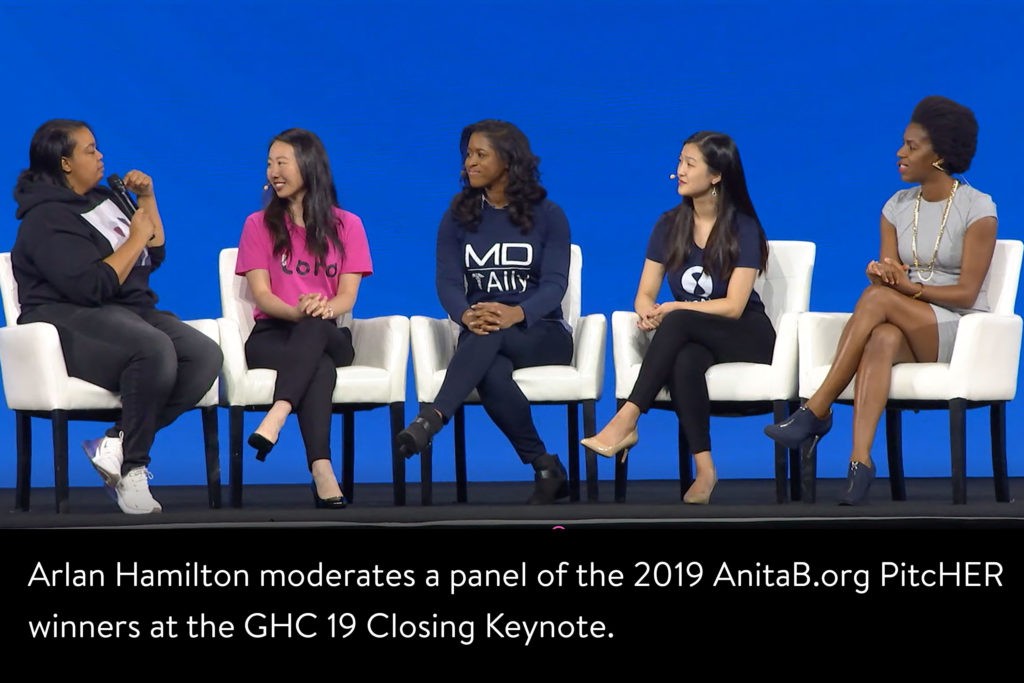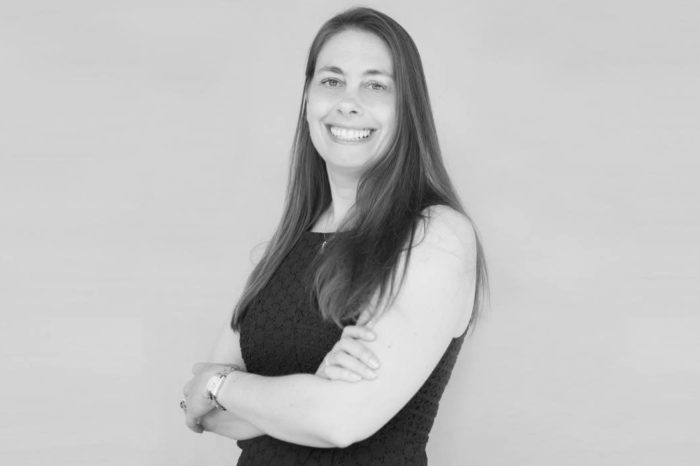Meet Laura Mather, ABIE Award Winner for Entrepreneurship

Meet Laura Mather, ABIE Award Winner for Entrepreneurship
Check out this video of Dr. Laura Mather’s GHC 17 session.
The ABIE Award for Technology Entrepreneurship recognizes a woman who is the builder of an innovative, groundbreaking, and game-changing technology startup venture. Award winners provide a strong role models for young women coming up the pipeline by turning technologies into viable businesses, transforming markets, and creating change. Talent Sonar CEO Dr. Laura Mather is this year’s Entrepreneurship ABIE Award winner, and will accept her award as part of the 2017 Grace Hopper Celebration (GHC), October 4–7 in Orlando, Florida.
Laura has consistently made it a priority to advance women in technology and nontraditional fields. She was an Everwise mentor, helping guide high-potential proteges through their first business ventures and developing their leadership capabilities. She is currently focused on developing technology that will help advance women and people of color in Silicon Valley.
We spoke with Laura recently to talk about the award and the path that brought her here.
What led you to a career in technology?
When I was 10 or 12 years old, we had a programmable Atari computer that I used to write up a checkout program for all of my books. So I had my own library and my friends could come check out a book — alas, no one ever did! But it was something I thought would be interesting to try and create on my own.
I was the editor of my high school newspaper, and I actually applied to journalism school. But my dad sat me down and said, “You know, you’re really good at physics and calculus. I think you should consider engineering.”
So when it was time to visit the University of Colorado, I attended some introductory sessions on journalism, but I also checked out the engineering school. Jim Curry talked about this new program they had called Applied Mathematics, and all the different places that math touches the world, from psychology to accounting to business to weather. From that moment on, I was in love with the subject. When I was going onto grad school, I realized that it was my computer science classes that I loved the most, not math, so that’s where I focused my Ph.D.
I think the combination of math and computer science is just so powerful. A lot of the algorithms I work on are very mathematical — looking for anomalous patterns and such — but they aren’t possible without the computer programs that can do the analysis.
It was almost a mistake that that helped me stumble on this path, but, in the end, it ended up being the absolutely perfect path for me.
What are you looking forward to at Grace Hopper Celebration this year?
To be honest, I’m looking forward to being surrounded by the the energy. I’ve actually watched a few of the keynote sessions online. The energy is really clear, even from the recording. That’s going to be amazing.
I’m also looking forward to the technology environment. I’ve attended a lot of women’s events because I’m working in diversity. Yet, none of them have really been technically focused. A lot of times when you’re at women’s events, you meet a lot of marketing people, a lot of HR-type people, but not as many technical people. So I have a feeling this is going to feel a bit like home for me.
What inspires your work in using technology to help remove bias from the hiring process?
I’ve spent my whole career applying technology to things that people said were impossible to address with technology. I went to a women’s conference back in 2012 and told people I was going to use technology to try and help diversity. I took a poll, and 80% of the people who answered said that it’s not possible to fix bias with software.
Just because people tell you that something is impossible doesn’t mean that there isn’t some tech solution that they haven’t thought of — computers, or artificial intelligence, or internet of things, or your favorite flavor — to address it. I think all of the women at GHC have an amazing opportunity to look at something that they’re passionate about, and think about a way technology can influence it.
For me, that was things like detecting criminal activity on a website by looking at web traffic behavior, and applying really interesting psychological learnings for hiring, through software.
Who do you consider a role model?
Susan Mason — who was also an engineer, and is now a venture capitalist — has been really instrumental in my growth, especially as an entrepreneur. Silicon Valley’s business climate, much like its technology base, is not super female-friendly. But having somebody I can go to about anything who also happens to be a woman and an engineer is fantastic. She’s really great at giving me multiple perspectives. Here’s what it looks like as a VC, but also here’s what it looks like to your executives, to your investors, to your customers. She has been so instrumental at kind of making me realize that there are many lenses on the world.
What would you like to see change for women in tech in the next 10 years?
I would love to see organizations realize that talking about wanting more women and fostering different activities are fantastic, and they’re necessary, but they’re not sufficient. I’m very concerned that there are a lot of organizations saying really great things about what they want to happen with women in technology, but not doing the things that have been proven to make a difference. So we need to get organizations doing some of those things — like blind resume review, like committing to structured interviews — that have been proven to change who gets hired. I want that to happen!
Hear Laura speak during GHC when she accepts her award at the Thursday Keynote session on Friday, October 5, 2017 from 9 a.m to 10 a.m. in OCCC WA2, or during her featured session, So You Want to be an Entrepreneur? on Wednesday, October 4, 2017, from 11:30 a.m. to 12:30 p.m. in the OCCC Valencia Ballroom.
Thank you to Neustar, sponsor of the 2017 Entrepreneurship ABIE Award.

